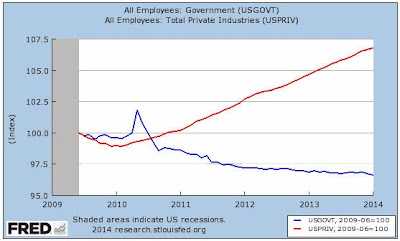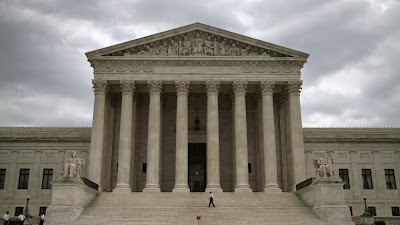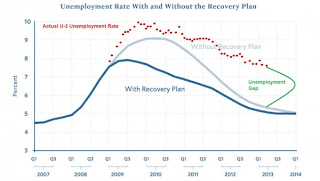Obama Arrogance... Part 2
by: Les Carpenter
Rational Nation USA
Liberty -vs- Tyranny
Earlier this week President Obama caused a bit of a outrage over his remarks with respect to his signature piece of legislation, the ACA, or ObamaCare. As the Supreme Court concluded oral arguments on the constitutionality, or lack thereof the President felt the need to weigh in politically on the subject. This is what he said.
Reading the Presidents statement two things stand out. First the congress did not pass the ACA with a strong majority. The legislation passed by a margin of 7 votes, 219 - 212 with 34 democrats voting against the legislation. Secondly to say that a Supreme Court Decision to strike the law would be unprecedented is simply untrue. The court has a history of striking laws it deems to fail constitutional muster. So, if the court strikes ACA it certainly will not be the first time this has happened in the Courts history.
The above considerations aside it is reasonable to most individuals to think the President came across as a bit arrogant as well as disrespectful of the Court with his reference remark "...that an unelected group of people would somehow overturn a duly constituted and passed law."
Given the above it is to the Presidents credit he came back with comment explaining his earlier remarks.
Given the Presidents clarification it is now reasonable to believe he both understands and respects the role of the SCOTUS.
Attorney General Eric Holder, in his response to 5th Circuit Court of Appeals Justice Smith's letter, left no doubt.
While a majority of the people are opposed to the ACA {ObamaCare} it is the job of the Court to determine the constitutionality of the law regardless of public opinion or their own personal views. All Americans should be hopeful the Supreme Court Justices look beyond any partisan beliefs they may have (both the liberals as well as the conservatives on the court) and impartially determine the issue of the laws constitutionality.
The concept of judicial activism is an issue all Americans should understand and be concerned with as judicial activism in extreme form can well become a form of judicial tyranny. What we all should want is judicial restraint whereby the courts use not only impartiality in their decisions affecting us but use restraint in striking laws that are passed by the duly elected people who are to represent us.
Given the uproar over the Presidents remarks this week, and the discussions that followed I leave the following for your consideration. They can be helpful in putting the issues of this past week in perspective methinks.
Via: Memeorandum
Rational Nation USA
Liberty -vs- Tyranny
Earlier this week President Obama caused a bit of a outrage over his remarks with respect to his signature piece of legislation, the ACA, or ObamaCare. As the Supreme Court concluded oral arguments on the constitutionality, or lack thereof the President felt the need to weigh in politically on the subject. This is what he said.
CBS NEWS - "Ultimately, I'm confident that the Supreme Court will not take what would be an unprecedented, extraordinary step of overturning a law that was passed by a strong majority of a democratically elected Congress. And I'd just remind conservative commentators that for years what we've heard is, the biggest problem on the bench was judicial activism or a lack of judicial restraint — that an unelected group of people would somehow overturn a duly constituted and passed law. Well, this is a good example. And I'm pretty confident that this court will recognize that and not take that step." — At a news conference Monday with Mexican President Felipe Calderon and Canadian Prime Minister Stephen Harper.
Reading the Presidents statement two things stand out. First the congress did not pass the ACA with a strong majority. The legislation passed by a margin of 7 votes, 219 - 212 with 34 democrats voting against the legislation. Secondly to say that a Supreme Court Decision to strike the law would be unprecedented is simply untrue. The court has a history of striking laws it deems to fail constitutional muster. So, if the court strikes ACA it certainly will not be the first time this has happened in the Courts history.
The above considerations aside it is reasonable to most individuals to think the President came across as a bit arrogant as well as disrespectful of the Court with his reference remark "...that an unelected group of people would somehow overturn a duly constituted and passed law."
Given the above it is to the Presidents credit he came back with comment explaining his earlier remarks.
"Well, first of all, let me be very specific. We have not seen a court overturn a law that was passed by Congress on a economic issue, like health care, that I think most people would clearly consider commerce — a law like that has not been overturned at least since Lochner. Right? So we're going back to the '30s, pre-New Deal. And the point I was making is that the Supreme Court is the final say on our Constitution and our laws, and all of us have to respect it, but it's precisely because of that extraordinary power that the court has traditionally exercised significant restraint and deference to our duly elected legislature, our Congress. And so the burden is on those who would overturn a law like this. Now, as I said, I expect the Supreme Court actually to recognize that and to abide by well-established precedence out there. I have enormous confidence that in looking at this law, not only is it constitutional, but that the court is going to exercise its jurisprudence carefully because of the profound power that our Supreme Court has. As a consequence, we're not spending a whole bunch of time planning for contingencies." — In response to a question Tuesday at the annual meeting of The Associated Press.
Given the Presidents clarification it is now reasonable to believe he both understands and respects the role of the SCOTUS.
Attorney General Eric Holder, in his response to 5th Circuit Court of Appeals Justice Smith's letter, left no doubt.
The longstanding, historical position of the United States regarding judicial review of the constitutionality of federal legislation has not changed and was accurately stated by counsel for the government at oral argument in this case a few days ago. The Department has not in this litigation, nor in any other litigation of which I am aware, ever asked this or any other Court to reconsider or limit long-established precedent concerning judicial review of the constitutionality of federal legislation...Full text of the Attorney General's letter here.
The power of the courts to review the constitutionality of legislation is beyond dispute...
The President’s remarks were fully consistent with the principles described herein.
While a majority of the people are opposed to the ACA {ObamaCare} it is the job of the Court to determine the constitutionality of the law regardless of public opinion or their own personal views. All Americans should be hopeful the Supreme Court Justices look beyond any partisan beliefs they may have (both the liberals as well as the conservatives on the court) and impartially determine the issue of the laws constitutionality.
The concept of judicial activism is an issue all Americans should understand and be concerned with as judicial activism in extreme form can well become a form of judicial tyranny. What we all should want is judicial restraint whereby the courts use not only impartiality in their decisions affecting us but use restraint in striking laws that are passed by the duly elected people who are to represent us.
Given the uproar over the Presidents remarks this week, and the discussions that followed I leave the following for your consideration. They can be helpful in putting the issues of this past week in perspective methinks.
Judicial activism is the view that the Supreme Court and other judges can and should creatively (re)interpret the texts of the Constitution and the laws in order to serve the judges' own visions regarding the needs of contemporary society. Judicial activism believes that judges assume a role as independent policy makers or independent "trustees" on behalf of society that goes beyond their traditional role as interpreters of the Constitution and laws. The concept of judicial activism is the polar opposite of judicial restraint.
Critics of judicial activism assert that it subverts the separation of powers principle founded by the framers of the U.S. Constitution. Judges frequently must interpret what the law actually says, but they are often accused of "judicial activism" if their interpretation seems be a rewriting of the law, especially if their rulings strike down or substantially revise laws passed by actual lawmakers.{USLegal}
Judicial restraint refers to the doctrine that judges' own philosophies or policy preferences should not be injected into the law and should whenever reasonably possible construe the law so as to avoid second guessing the policy decisions made by other governmental institutions such as Congress, the President and state legislatures. This view is based on the concept that judges have no popular mandate to act as policy makers and should defer to the decisions of the elected "political" branches of the Federal government and of the states in matters of policy making so long as these policymakers stay within the limits of their powers as defined by the US Constitution and the constitutions of the several states. {USLeagal}
Judicial restraint is a legal term that describes a type of judicial interpretation that emphasizes the limited nature of the court's power. Judicial restraint asks judges to base their judicial decisions solely on the concept of stare decisis, which refers to an obligation of the court to honor previous decisions.
Conservative judges often employ judicial restraint when deciding cases, unless the law is clearly unconstitutional. Judicial restraint is the opposite of judicial activism, in that it seeks to limit the power of judges to create new laws or policy. In most cases, the judicially restrained judge will decide a cases in such a way as to uphold the law established by Congress. Jurists who practice judicial restraint show a solemn respect for the separation of governmental problems. {US Conservative Politics}
Via: Memeorandum







And don't forget all the arm-twisting, billions in bribes and kickbacks, and parliamentary shenanigans it took to get this grotesque display of hubris and ignorance through.
ReplyDeleteProgressives have openly engaged in judicial activism for over 100 years. It's how we got into the mess we now find ourselves in.
And unbridled, unbounded government that has broken its constitutional chains is like a herd of rogue beasts, trampling and gobbling all in their path. Unfortunately, too many partisans only squeal when it is their hut that is trampled.
Here's something for the big government liberals to contemplate: If government were an efficient humming beehive of productivity that was operating within budget, you might have a case.
As it is, it is a monster, trampling our rights, confiscating our money when it is not busy debasing it, making things worse that it chooses to "go to war" with, all while racking up multi-trillion dollar debt.
What in the world would give you any shred of confidence that it can manage your health care?
If Republicans had cut spending, before cutting taxes; our debt would be minimal.
DeleteIf Republicans had cut spending, before cutting taxes; our debt would be minimal.
DeleteReplace "republicans" with "politicians" and I'll agree with you.
I have far more faith in the government's role in healthcare than I do the the private insurance sector!
ReplyDeleteJMJ
And I have great faith in neither. However, given the choice I WILL DEER TO THE PRIVATE SECTOR....
DeleteDamn those typos! DEFER, rather than DEER.
DeleteIf I had had to have "faith" in private insurance, I would probably be dead, since my private insurance threw me off of its coverage [all premiums had been paid on time for years, BTW] when I was diagnosed with breast cancer, and labeled me with a pre-existing condition when I had a second round. Thanks to Romneycare in Massachusetts and the good people of Mass. General Hospital, I survived and lived to see another grandchild born.
ReplyDeletePrivate insurance played dice with my life. Government insurance saved it. This is a fact.
Do you think I'm the only one who has this story? Had my parents remained in Italy instead of emigrating to this country, there would have been no question about government health coverage during that awful time in my life. Instead they came to this country with hopes and dreams and a belief in capitalism, and their daughter could very well have died because of their misplaced belief in fairness and capitalism where private insurance companies place profits over human lives.
Need I say more?
Not unless you wish to.
DeleteI prefer private over government still, for myself anyway. I acknowledge that pre existing should not be a issue in private sector insurance either. There ways this good be handled.
Shaw: You have told your story numerous times, and we've all acknowledged the validity of it.
ReplyDeleteCongress could simply pass some insurance reform that prevents insurance companies from imposing catastrophic caps and from kicking people off their coverage. This would necessarily raise rates for all and it would be based upon actuarials much as life insurance now is.
Preexisting conditions could also be covered in some fashion. It doesn't take hundreds of new bureaus and offices staffed by armies of government bureaucrats.
Government could even set up rules that fostered catastrophic care markets, and have programs for the indigent that paid their premiums for them.
This is where the fundamental disagreement lies: What role the government should play. Based upon it's past performance, I wouldn't trust it to watch my dog.
SF, I've never shared that story here.
ReplyDeleteA personal story about how private insurance doesn't always protect you is better than an abstract assertion.
And just as you continue to blog about your position on abortion because it is important to you, I repeat this because believe it is important to show a human face on how people can be at the mercy of corporate greed when they get sick.
I didn't mean to sound as "Kurt" as I did, Shaw. No doubt, no one should be left broke and scared because their insurance company dumped them. Good legislation would prevent that.
DeleteShaw, you have spoken correctly. I am aware of your story from visiting your fine site. This is the first time you shared it here. Thank you.
DeleteI do not view this necessarily as corporate greed, rather I see it is a business decision based on empirical data companies use to make business decision that maintain the viability of the company that also employs, and thus generates income for people to maintain their lives and thge welfare of their family.
Having said this I also believe it possible, as SF stated to develop and market a plan through the private sector that would preclude anyone having to face what you did. I for one would support this completely. Even if it meant higher health insurance premiums.
As one who believes in realizing and maintaining maximum individual independence, self reliance, hard work, personal responsibility, personal accountability, and a belief in the human spirit and competitive nature I would gladly welcome an open and honest discussion here at RN USA on this issue.
Again Shaw, thank you for sharing your story. As I stated on your sight not to long ago you are indeed a Class Act. Even when I disagree,
The legislation passed 60–39 in the Senate, which I believe qualifies as a strong majority.
ReplyDeleteYour citing of a percentage of people who aren't supportive is highly deceptive. It includes people (11 to 14 percent of all Americans, according to this source) who oppose the health reform law because they think its approach is NOT LIBERAL ENOUGH.
I'm one of those who believes it isn't Liberal enough. That said, I think we should keep it. The Supreme Court has no business striking down a law passed by our elected representatives. This "unconstitutional" baloney is flat-out BS.
Scalia didn't even know that the so-called "Cornhusker Kickback" was repealed. The corportists on the court are just parroting Right-wing talking points.
"The Supreme Court has no business striking down a law passed by our elected representatives."
DeleteI respectfully suggest you study up a bit on our three branches of government with a specific focus on the Supreme Court and its purpose.
The Court's function is indeed to interpret law against the backdrop of the Constitution. In other words to determine a laws constitutionality. A damn good thing methinks. That is of course unless you are desirous of rule by tyranny of the majority.
And dervish is just parroting left-wing talking points.
ReplyDeleteThis "unconstitutional" baloney is flat-out BS.
Please substantiate that remark with some substance beside your own opinion. And the cornhusker kickback did not make the law unconstitutional, so it is immaterial to the discussion.
I'll also ask you what the limits of government are. What may government not do?